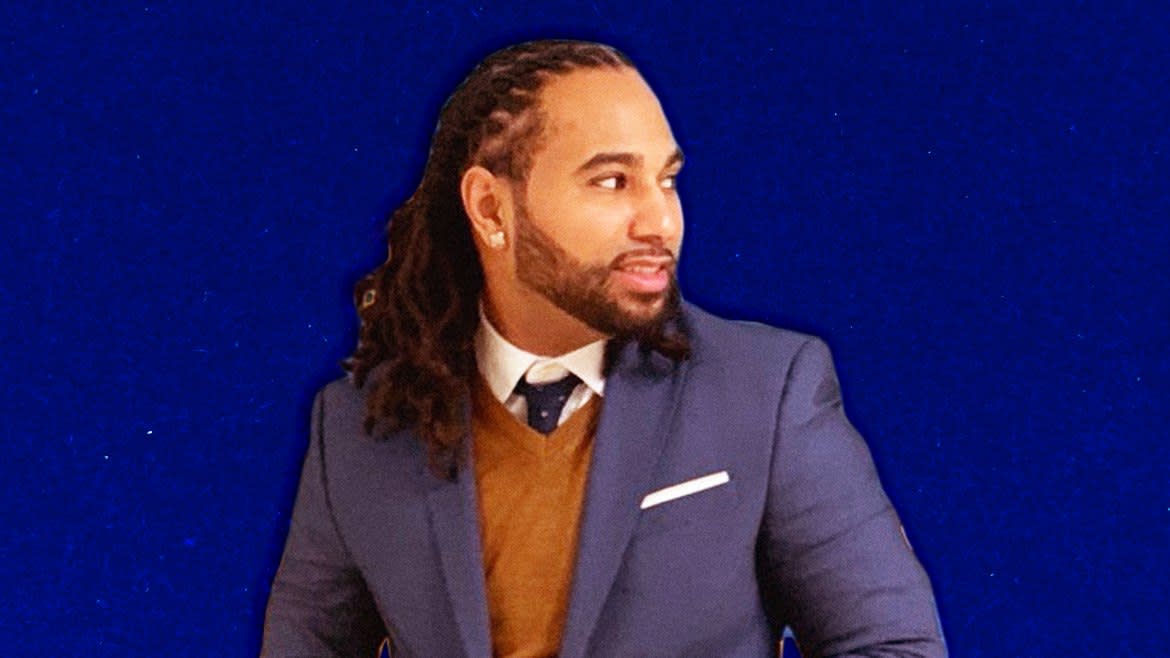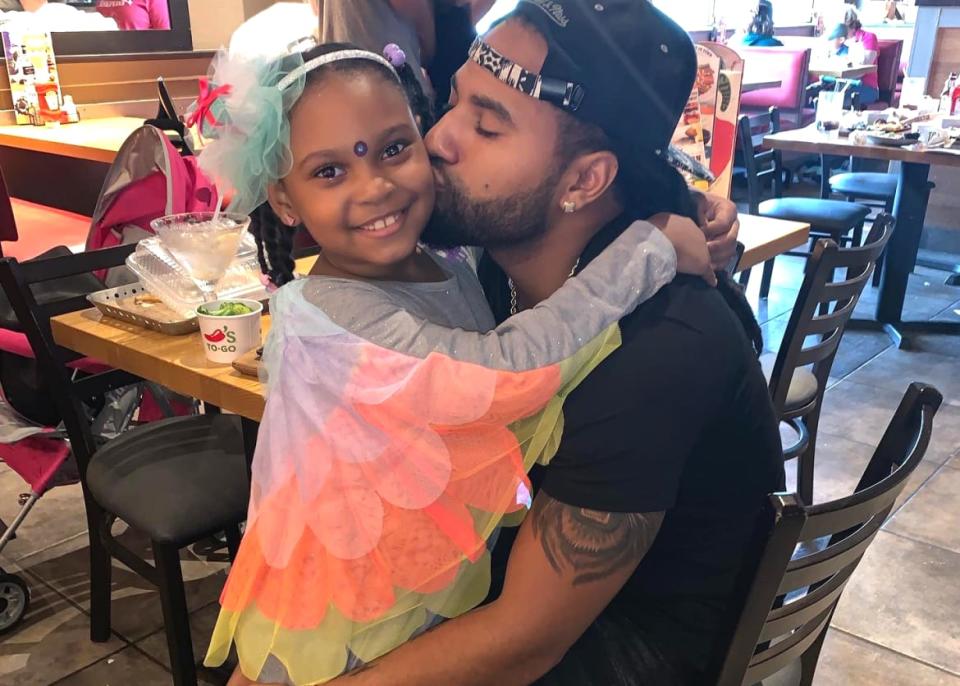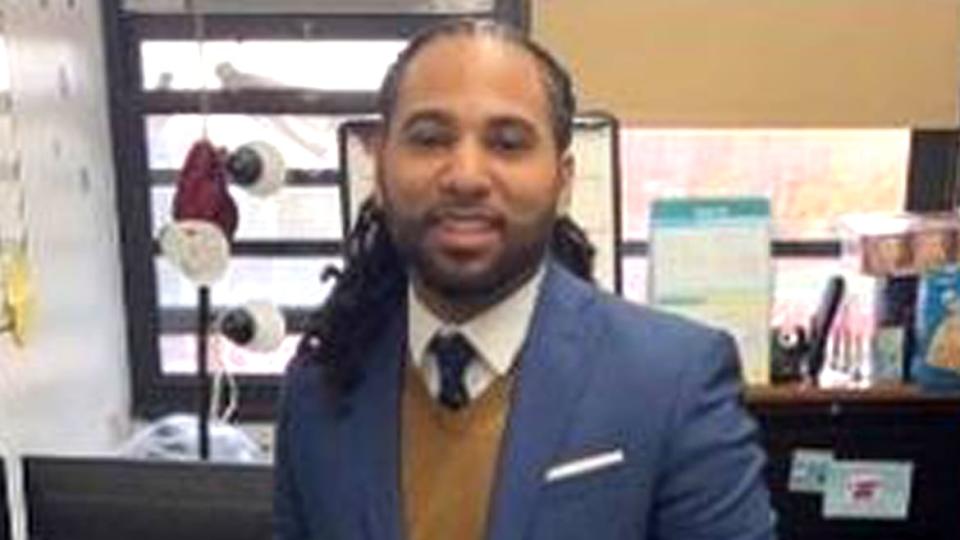Was This Maserati-Driving High School Dean Living a Twisted Double Life?

Former Bronx high school dean Israel Garcia’s family says he is a loving father figure who turned his life around.
His students say he was an encouraging mentor who helped them understand that coming from a rough neighborhood doesn’t stop you from achieving something more.
The federal government says he’s the kingpin in a gang-led drug conspiracy—a Maserati-driving criminal who orchestrated drug sales on his old block, and that his day job was a convenient cover story.
Now, Garcia is fighting from behind bars to face trial—claiming that he was pressured by his former lawyer to plead guilty despite his innocence. He faces a hearing on the matter on Tuesday, his case the latest example of how broad conspiracy prosecutions can put the screws on alleged gang members with devastating results.
“They’re putting more years on him than Chapo Guzman, than Pablo Escobar,” his mother, Josefina Espinosa, told The Daily Beast, noting that they couldn’t afford a private attorney.
She was exaggerating, though the most extreme scenario is a dire one. Garcia faces a minimum sentence of 10 years if his plea stands. If he goes to trial, he faces 15 years to life.
His family does not deny that, when he was young, Garcia was involved in gang life. They also do not deny that, as an adult, he remained in touch with his old friends—some of whom may have been in a gang.
But, they say, he is no drug lord.
“It’s sad. It’s sad now that, for years, he had already changed his life,” Espinosa said in Spanish.

Garcia was indicted under notoriously difficult-to-beat conspiracy laws, which have become a favorite weapon of the government in its contemporary attempts to crack down on gangs and gun violence.
But some criminal justice reform advocates have called the use of conspiracy laws against neighborhood crews primed for abuse—and noted they are often leveraged over young and poor defendants of color.
As Garcia was growing up, he had long been hassled by the cops, and he did have a criminal history. But after his first child, a now-10-year-old daughter, was born, he decided to change his life, family members claim.
He got a job at the post office before going to college to earn his associate’s degree, his family said. Then he became a dean at the New Visions Charter High School for the Humanities I and II, high schools in New York City and the Bronx, one on the same campus where he once studied himself.
That didn’t stop the police from dogging him. Garcia would file multiple complaints with New York’s police watchdog organization, the Civilian Complaint Review Board (CCRB), according to his girlfriend, Hilary Hernandez.
Last year, when Garcia heard that federal law enforcement showed up at his old address in the Bronx, saying they had a warrant for his arrest, he eventually decided to turn himself in, according to his family.
Federal prosecutors alleged that the Bronx native was part of a “decade-long narcotics conspiracy,” one they say he carried out as “the Big Gun of the GMG YGz” gang.
This despite his having worked nearly six years as a dean.
“The defendant stopped being on the block regularly and worked normal jobs, including becoming a dean at a charter school located in the Bronx. Even then, however, he continued to lead the GMG YGz, sell drugs, and use firearms,” read a motion submitted to court by federal prosecutors.
To many of his students, Garcia’s had been an inspiring story. And even after his guilty plea, many aren’t buying the government’s narrative of him as a career gangster.
Jonathan Domenech, now 21, told The Daily Beast that during and even after his time at New Visions, Garcia encouraged him to make friends—and then to aim high, even when he had given up on himself, constantly asking him what he wanted to do with his life.
“He still was helping me during my college application,” said Domenech, who said that Garcia’s positivity and fairness to students made him beloved. “And the college I went to, he told me was a really good college and the business side was excellent... I ended up getting a scholarship to go to school. “

Israel Garcia.
“Anytime kids needed him, he was always there,” Domenech added. “No matter the situation, how bad it was, how good it was, he was always there and he made sure everybody felt like they was treated equal... I can honestly tell you that’s why a lot of kids loved him as a dean. And when he left the school, it broke all our hearts, because that was our go-to person. We could go to him for anything—we all knew he would help.”
When he heard about the indictment, Domenech said, “It broke my heart. It came to a point where he wasn’t my dean no more—he was more like a guidance in my life.”
Domenech wasn’t alone. Multiple other former students and coworkers wrote letters to Judge Jed Rakoff attesting to Garcia’s positive influence on their lives—how he helped them graduate high school, led restorative justice circles, and kept them positive when they dealt with depression.
The direct evidence the government offered upon Garcia’s arrest as proof of his leadership in the conspiracy is slim, his previous lawyer, Raoul Zaltzberg, argued last year. Included among that evidence: a cooperating witness referring to events that took place as far back as 2010, and transcriptions of phone calls where prosecutors say Garcia was asking for money from those selling on his block, but in which drugs were never explicitly discussed.
Prosecutors argued that Garcia’s attempts to move conversations to Facetime were part of a sneaky effort to avoid speaking on tapped lines.
Know something we should about police or gangs? Reach out to Eileen Grench at Eileen.Grench@TheDailyBeast.com or securely at eileen.grench@protonmail.com.
“As a leader of a criminal organization, two social media postings, one conversation, feels to me like he’s either a very absent leader, or maybe that is not the decision-making point that they think it is,” Zaltzberg told the judge at a bail hearing.
But the evidence later entered against Garcia in a 41-page document is still wide-ranging. Prosecutors used rap lyrics, social media, music videos, jail calls, and more to paint a picture of a gangster living a double life.
While some posts and rap videos allegedly allude to gang affiliations, the material was not always dispositive. One example: The feds cite Facebook statuses and rap lyrics like, “Just Tryna Have a Good Job and Be a Good Cat, But its Harder To get a 9-5 Then To Cook Crack” as evidence that “instead of getting a ‘good job,’ the defendant sold drugs.”
The post in question is over a decade old.
While the case portrays Garcia as a gangbanger who had the nerve to drive a Maserati around his old neighborhood once a week to collect money, his mother shared documentation with The Daily Beast that showed she had requested a loan for the car herself—and that it was a used vehicle.
“The issue was he continued to hang out with his childhood friends,” argued his sister, Elia Garcia.
Another piece of evidence prosecutors described during Garcia’s initial bail hearing was an Instagram post of a picture with former students allegedly throwing up gang signs. According to prosecutors, the caption read, “When your seniors find out that you used to be the big homey.”
“I remember him posting that,” said Domenech. “I don’t think it was anything to incriminate himself. I feel like it’s more like, ‘I came such a long way,’ you know, and being able to, like, help these kids—it fulfilled him.”
“His past doesn’t define who he is,” the former student added.
Instead, after becoming a dean, “He actually took the fact that he was gang-affiliated, used that to be able to change a lot of people’s lives,” echoed Garcia’s sister.
Even if he does get the chance to go to trial, his chances, experts say, are slim.
Conspiracy charges “do not require proof that any crime has been committed,” but only that there exists an “agreement to commit a target crime,” reads a report by CUNY law professor Babe Howell on a previous gang raid, called The Bronx 120.
“In a typical case where an individual is charged with a crime, the rules of evidence preclude introduction of many prior convictions, crimes, or bad acts, unless they relate to credibility,” the report says. Instead, in a conspiracy case like this one, “procedural and evidentiary rules allow proof of wide-ranging criminal conduct over long periods of time, even when a previous prosecution would normally preclude retrial on the crimes.”
The law also allows the government to convict one person for the conduct of others‚ only needing to prove that the defendant agreed to commit a crime, and that others took the overt acts, Howell explained in an interview.
“You could be sitting home by the fire, doing nothing, not even knowing other people are doing the thing, and yet getting convicted, which is the power of the conspiracy charge,” Howell told The Daily Beast.
Because of this, lawyers usually push defendants in cases like this to plead guilty, as the cost of going to trial—called the trial penalty—is so steep, no matter their innocence or guilt. Even Judge Rakoff called Garcia’s sentencing guidelines “absurd” in a hearing on the case.
“Sentences tend to be essentially endless—decades—if you have the gall to go to trial,” Howell said.
Howell added that she has seen many people she strongly suspected to be innocent “convicted again and again” in such cases.
Prosecutors will need to convince a jury that; “It doesn’t matter how weak the evidence is—you know, that narrative is [that Garcia]’s a leader in the gang, he doesn’t use social media… he’s not visible because he’s that smart,” she said. “And meanwhile, the people who are getting the cooperation deals are actually the people who are caught red-handed.”
Discipline Crackdown Freaks Out Parents in Florida Schools
But, she explained, in Garcia’s case, this could create additional pressure on the court. Once the government secures a plea from the defendant, cooperating witnesses are often handed their own deals, which, the law professor said, could make it harder for the feds to haul them back to court to testify.
In other words, the feds may have every reason to want to stick to the original plea—and avoid a trial that might be messy.
The District Attorney’s office for the Southern District of New York declined to comment for this story.
To even move forward to trial, Garcia must first be granted his motion at the upcoming hearing. It’s an uphill climb.
In September, Garcia requested for the second time to withdraw his guilty plea, alleging that he had audio proving he was browbeaten into believing he had no other choice but to plead guilty by Zaltzberg. According to Garcia, his former attorney claimed that if he went to trial, he would never see his daughter—his younger child had not yet been born—ever again.
Zaltzberg—who did not respond to a request for comment for this story—has disputed Garcia’s claims. He argued that his former client knew exactly what he was doing after multiple meetings, and was given every opportunity to reconsider before pleading. And Judge Rakoff previously rejected Garcia’s argument, siding with prosecutors.
Zaltzberg, in a letter to court used by prosecutors, said he regretted his bluntness during a “heated exchange,” but insisted that he was just being candid in the recording.
“Should Mr. Garcia lose, he is facing life in prison, which is a very real possibility given the guideline range,” read his written testimony to the court.
Elia Garcia, Israel’s sister, feels her brother has had a target on his back since he was a kid. Now, she hopes that he’ll at least be able to try and prove his innocence.
“They don’t give these men a chance to really change,” she told The Daily Beast. “People can change!”
Get the Daily Beast's biggest scoops and scandals delivered right to your inbox. Sign up now.
Stay informed and gain unlimited access to the Daily Beast's unmatched reporting. Subscribe now.

 Yahoo News
Yahoo News 
